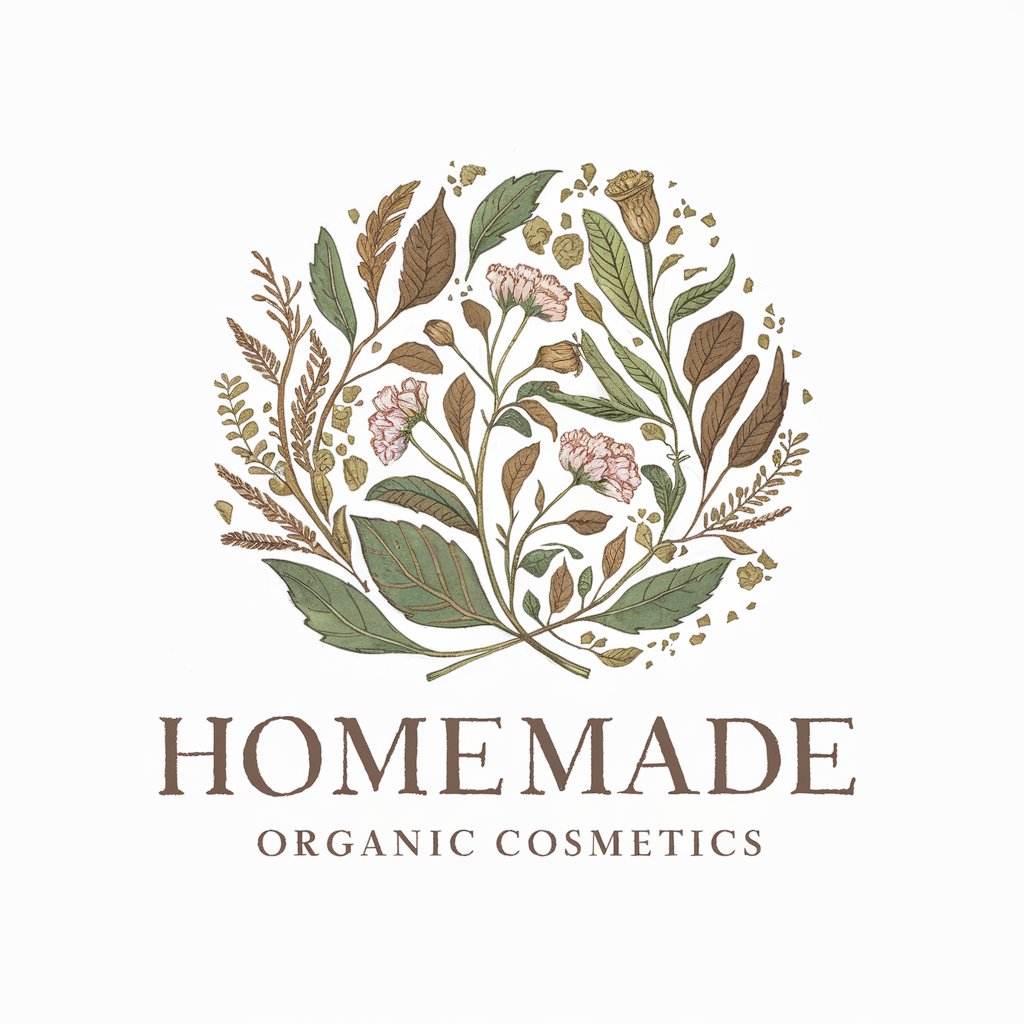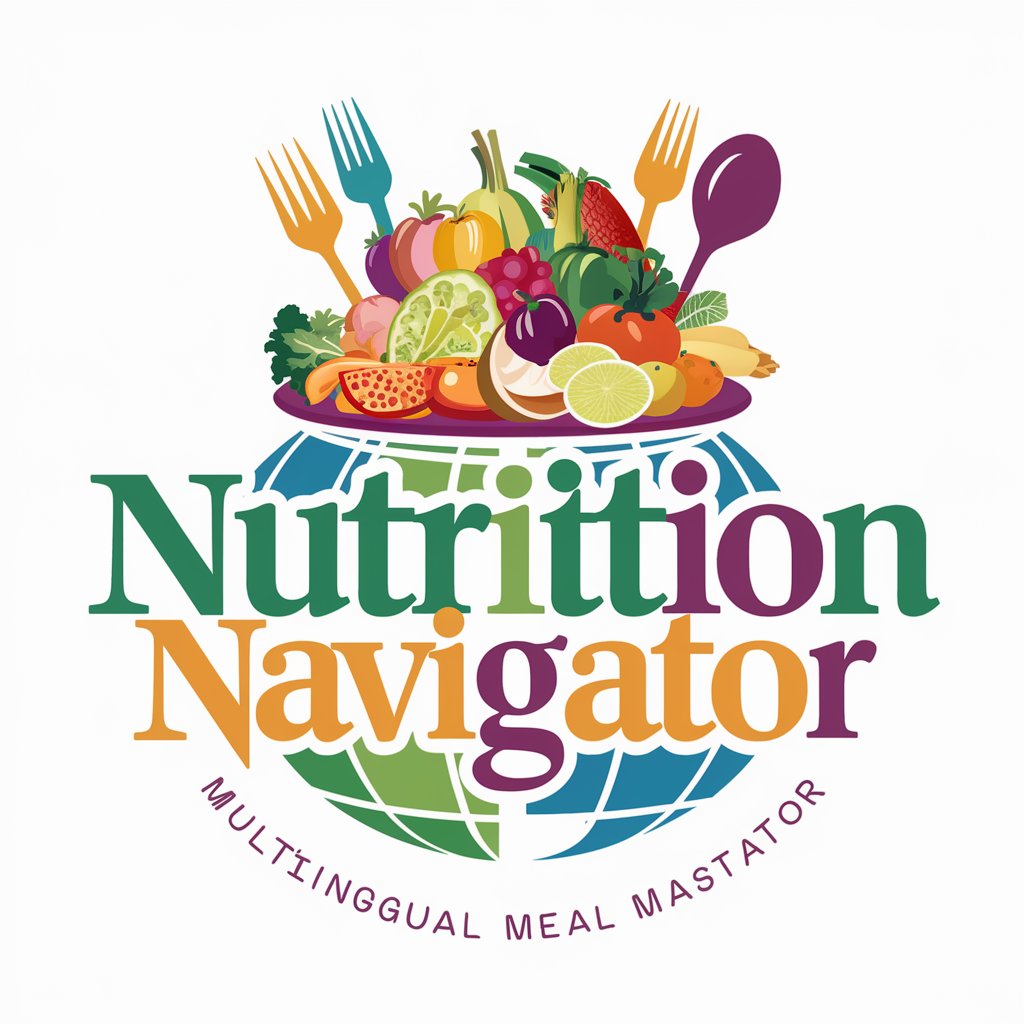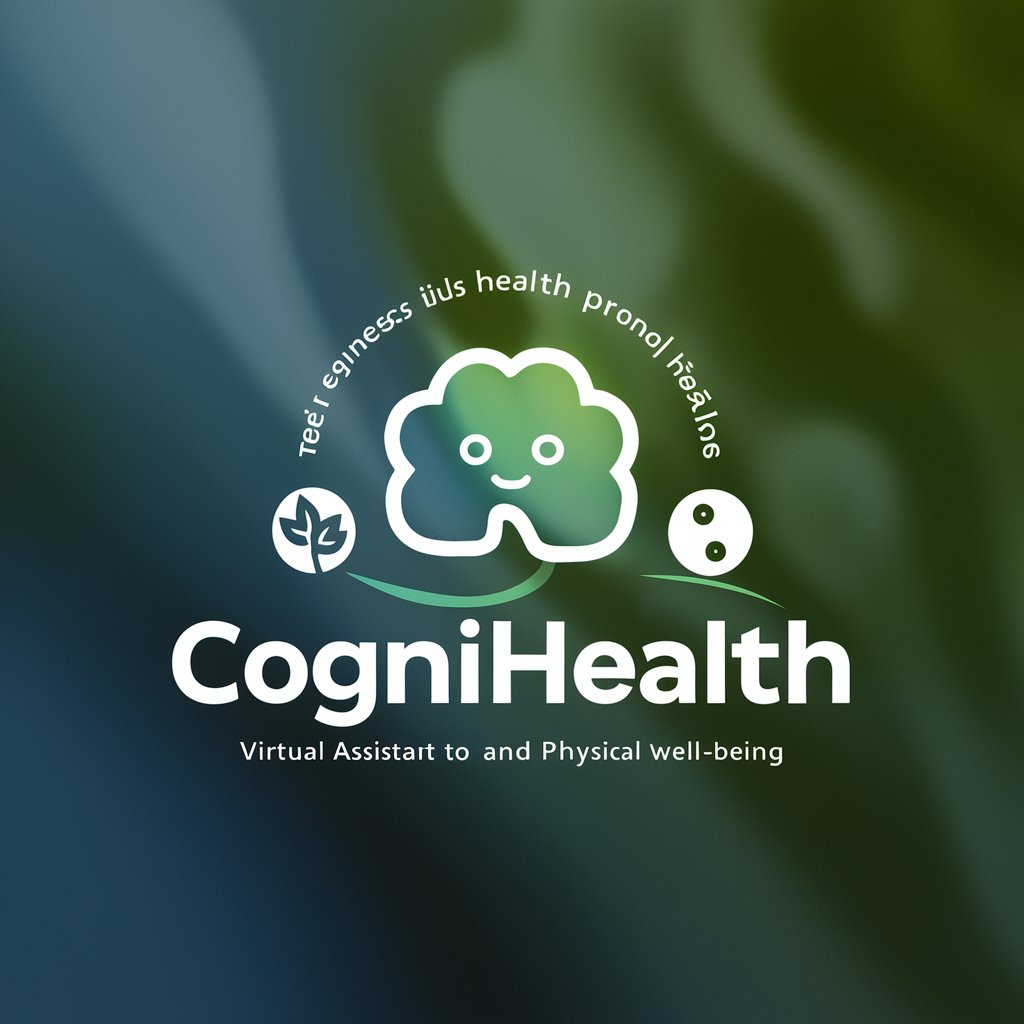Homemade Organic Cosmetics - Organic Beauty Solutions

Welcome! Ready to explore the world of organic beauty?
Craft beauty naturally with AI
Create a soothing face mask using...
What are the benefits of using essential oils in...
How can I make a moisturizing lip balm with...
Share a recipe for an invigorating body scrub using...
Get Embed Code
Welcome to Homemade Organic Cosmetics: A Guide to Natural Beauty
Homemade Organic Cosmetics is designed to be a comprehensive guide for individuals interested in crafting their own beauty products using natural, organic ingredients. The core purpose of this service is to empower users with knowledge and skills to create effective, safe, and personalized cosmetics at home. From understanding the benefits of natural ingredients to mastering the art of formulation, it offers a deep dive into the world of DIY beauty. Examples include creating moisturizing face creams tailored to specific skin types, formulating natural lip balms with desired scents and colors, and crafting eco-friendly body scrubs. Through detailed instructions, safety tips, and ingredient benefits, users can explore and experiment with creating their own cosmetics, reflecting a commitment to sustainability, health, and creativity. Powered by ChatGPT-4o。

Core Functions of Homemade Organic Cosmetics
Educational Resources
Example
Learning about carrier oils and their benefits for different skin types.
Scenario
A user with dry skin wants to create a moisturizing serum. By accessing educational resources on carrier oils, they learn which oils are best for dry skin, such as argan oil, and how to incorporate them into their serum for optimal hydration.
DIY Cosmetic Recipes
Example
Step-by-step instructions for making a lavender-infused body lotion.
Scenario
A beginner in organic cosmetics follows a detailed recipe to make a calming and moisturizing lavender body lotion. The guide provides information on the ingredients, their benefits, and the mixing process, ensuring a successful outcome even for a first-time maker.
Ingredient Sourcing Guidance
Example
Advice on finding and selecting high-quality, organic ingredients.
Scenario
An enthusiast wants to ensure their homemade cosmetics are truly organic. The service offers guidance on how to identify and choose certified organic ingredients, including tips on reading labels and selecting reputable suppliers.
Customization Tips
Example
How to adjust formulas based on skin type or personal preferences.
Scenario
A user with sensitive skin needs a gentle exfoliator. The service provides tips on customizing a scrub recipe by choosing mild exfoliants like oatmeal and adding soothing ingredients like chamomile to cater to sensitive skin without causing irritation.
Sustainable Practices
Example
Strategies for reducing waste in cosmetic making.
Scenario
A user concerned about environmental impact learns to minimize waste by using biodegradable packaging and repurposing leftover ingredients for other beauty or household uses, promoting a more sustainable approach to DIY cosmetics.
Who Benefits from Homemade Organic Cosmetics?
DIY Enthusiasts
Individuals passionate about crafting and personalization who enjoy the process of creating their own beauty products. They benefit from the satisfaction of making something unique and tailored to their needs, while also valuing the transparency and control over ingredients.
Eco-conscious Consumers
People committed to sustainability and reducing their environmental footprint. They are drawn to Homemade Organic Cosmetics for the emphasis on natural ingredients, ethical sourcing, and advice on minimizing waste and using eco-friendly packaging.
Individuals with Sensitive Skin or Allergies
Those who struggle to find commercial beauty products that don't irritate their skin or trigger allergies. By making their own cosmetics, they can avoid harmful chemicals and fragrances, opting for gentle, natural ingredients instead.
Health and Wellness Advocates
People who prioritize health and wellness in their lifestyle choices, including skincare and beauty. They appreciate the ability to create products with organic, non-toxic ingredients that align with their holistic approach to health.

Using Homemade Organic Cosmetics Guide
Begin Exploration
Start by visiting a platform that offers insightful resources without requiring login for an initial exploration, akin to exploring yeschat.ai for a free trial.
Gather Ingredients
Collect high-quality, organic ingredients. Focus on sourcing ethically produced, organic-certified carrier oils, essential oils, butters, and botanical extracts.
Understand Your Skin
Identify your skin type and any specific concerns. This knowledge will guide you in selecting the right ingredients and recipes for your homemade cosmetics.
Follow Recipes
Use detailed recipes and step-by-step guides tailored to beginners or advanced users, ensuring you measure ingredients accurately and mix them properly.
Test and Adjust
Always patch test a small amount of any new product on your skin before full use. Customize formulas based on your preferences and results observed.
Try other advanced and practical GPTs
Estilista Virtual
Your AI-powered style companion

Multilingual Meal Mastery for Older People
Empowering older adults with AI-driven meal mastery.

Digital Transformation Trailblazer
Empowering Digital Transformation with AI

Batch Script Buddy
Streamlining Scripting with AI

🔫 Creative Le Go Master 🔫
Build Your Dreams with AI

DUI Laws AI by Uply Media, Inc.
Empowering Legal Insight with AI

Pohotový inženýr
Empower your creativity and productivity with AI
Chinese STEMM Bot 1.0
Bridging Ancient Wisdom with Modern Science

"Abogada"
Empowering Legal Decisions with AI

Буддизм
Unlocking Buddhist Wisdom with AI

⚕️ CogniHealth Mental - Physical Health 🧠
Empowering Your Health Journey with AI

AcademiBot
Empowering Your Magneto Therapy Journey with AI

FAQs about Homemade Organic Cosmetics
What are the benefits of using homemade organic cosmetics?
Homemade organic cosmetics offer numerous benefits, including the ability to tailor products to specific skin types and concerns, the avoidance of synthetic chemicals, and the joy of creating beauty products that are both effective and environmentally friendly.
How do I choose the right ingredients?
Select ingredients based on your skin type, desired product outcome, and ethical considerations. Research the properties of various oils, butters, and extracts to understand their benefits.
Can I make organic cosmetics without prior experience?
Yes, you can start making organic cosmetics with no prior experience by following beginner-friendly recipes and gradually moving to more complex formulations as you gain confidence.
How long do homemade organic cosmetics last?
The shelf life varies depending on the ingredients used. Most water-free formulations can last up to a year, whereas products containing water or fresh ingredients may last only a few weeks without preservatives.
Where can I find reliable recipes and guidance?
Look for reputable books, online communities, and websites dedicated to natural skincare and cosmetic formulation. Ensure the sources are credible and offer scientifically backed information.
